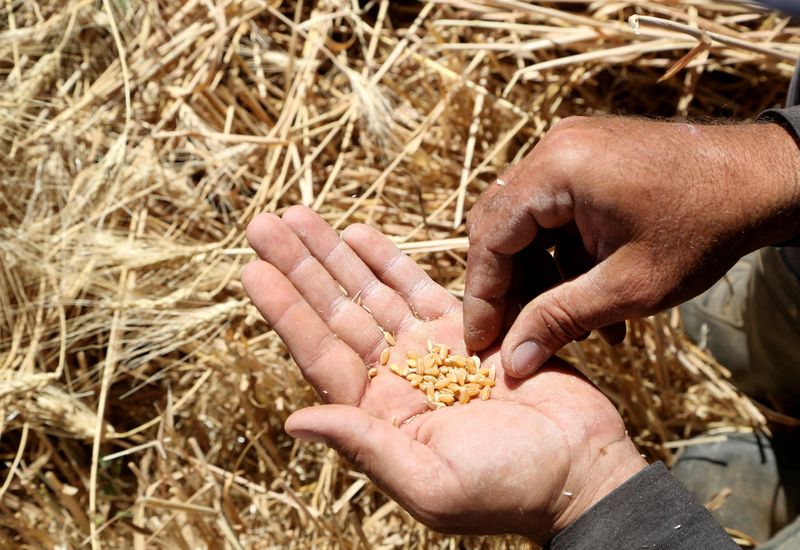By Olga Popova, Gleb Stolyarov and Jonathan Saul
MOSCOW/LONDON (Reuters) – Russian wheat deliveries to Syria have been suspended due to uncertainty over the new government and payment delays, Russian and Syrian sources said on Friday, while two ships carrying Russian wheat for Syria did not reach their destinations.
Russia, the world’s largest wheat exporter, was a staunch supporter of Bashar al-Assad and supplied wheat to Syria through complex financial and logistical arrangements, circumventing Western sanctions on both Syria and Russia.
A Russian source close to the government told Reuters that deliveries to Syria have been suspended as exporters worry about uncertainty over who will manage wheat imports on the Syrian side after the change of power in Damascus.
“I don’t think anyone would dare to supply wheat to Syria under the current circumstances,” the source, who spoke on condition of anonymity due to the sensitivity of the situation, told Reuters.
Shipping records show one ship, the Mikhail Nenashev, anchored off the Syrian coast, while another, the Alpha Hermes, is heading to the Egyptian port of Alexandria after spending several days off the Syrian coast.
The Syrian General Establishment for Cereals Processing and Trade (Hoboob) used to hold tenders to purchase wheat, but has increasingly relied on a network of international intermediaries to maintain Russian supplies despite sanctions.
Rebel leader Ahmad al-Sharaa’s Islamist group, which ousted al-Assad last week in a rapid campaign in Damascus, is asserting its authority over the Syrian state by deploying police and installing interim officials.
However, they have yet to establish a new government in Hoboob or establish another commodity import agency, according to Syrian sources, who also spoke on condition of anonymity.
RUSSIAN AND INTERIM GOVERNMENT IN CONTACT
A Syrian source told Reuters that ships had been delayed due to uncertainty over payments and that Russia and the interim government were communicating on the issue. A Russian industry source said Russian exporters were in contact with the Syrian side.
Russian Deputy Foreign Minister Mikhail Bogdanov said on Friday that Russia has established direct contact with the political committee of the Syrian Islamist rebel group Hayat Tahrir al-Sham, with the aim of maintaining its military bases in Syria. He did not comment on the wheat trade.
Since there was no payment from the Syrian side for the wheat delivered, a Russian industry source said the cargo of about 60,000 tons loaded on the two ships could be sold to another buyer.
The two ships can together transport 33,000 tons of wheat. However, part of Russia’s grain trade with Syria is carried out using sanctioned Syrian ships that are not visible on tracking systems.
Eduard Zernin, head of Russia’s Grain Producers and Exporters Union, told Reuters this week that Russian grain exporters have no plans to unilaterally stop supplying wheat to Syria.
Zernin estimated Syrian imports at about 2 million tons of wheat per year, and said Syria was not a major consumer. However, a disruption to Russia’s wheat supply could cause hunger in the country of more than 23 million people.
Dmitry Rylko of the consultancy IKAR estimated wheat exports to Syria so far this season at 300,000 tons, with the country ranking 24th among Russian wheat buyers. Syrian imports vary from year to year, depending on the country’s own harvest.

Syria could produce up to 4 million tons of wheat in a good year, which would be enough for domestic needs and allow some exports.
However, wars and successive droughts have decimated the harvest, forcing the country to rely on imports from the Black Sea region to maintain a bread subsidy program essential to its population.


